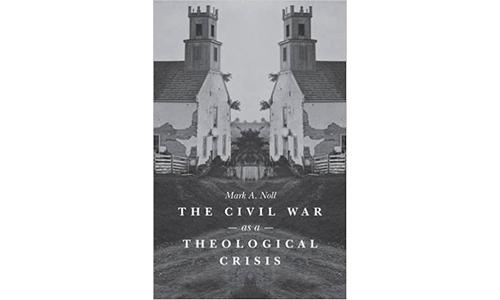The great error of history
“So God created human beings in his own image, in the image of God he created them; male and female he created them”(Genesis 1:27, TNIV).
A noted church historian once observed that the great error of history is presumption-presuming that one has grasped the necessary facts related to a person, a group or situation when in reality one is largely uninformed. Perhaps you can recall a time in your own life when presumption led you into deep waters. I certainly can.
Some of the deepest waters in American history are the result of acting on presumptions rather than facts. Consider the presumption that created and legitimized American slavery. Slavery in the US was based on the mistaken belief that Africans as an ethnic group were inferior. In his towering book, The Civil War as a Theological Crisis, historian Mark Noll said that “so seriously fixed in the minds of white Americans, including most abolitionists, was the certainty of black racial inferiority that it overwhelmed biblical testimony about race, even though most Protestant Americans claimed that Scripture was in fact their supreme authority in adjudicating such matters†(Noll p. 73).
There were, however, some who cried out for the facts concerning race. Noll highlights one missionary working in Africa who said that nowhere in his experience had he observed evidence of the “native inferiority†of Africans “which many good and learned [people] suppose to exist.†According to this missionary, the deplorable ignorance ascribed to African culture was created by the slave trade (Noll p. 118)!
Like slavery, the presumptions made about women from nearly every philosophical and religious tradition have had deep roots. They have muddied our biblical clarity regarding gender and have led to the oppression and marginalization of women.
Presumptions are also responsible for the ignorance ascribed to the female gender. Conscious that if you control for opportunity you also control for ability, missionaries like Pandita Ramabai and others led the way to educate and empower women. They believed that women are equally created in God’s image and equally gifted by God, and therefore equally capable of extraordinary service. Like those who opposed the presumed inferiority of Africans, so too missionaries like William Carey, Mary Slessor, Amanda Smith, Amy Carmichael, Lottie Moon, Gladys Aylward and Katherine Bushnell challenged the gender prejudice that furthered the gross mistreatment of women around the globe.
May we always allow God’s Spirit to challenge our presumptions and enable us to interpret Scripture consistently. May we honor every human being as created in God’s image.
In Jesus,
Mimi Haddad
President
CBE International
Reference:
The Civil War as a Theological Crisis (The Steven and Janice Brose Lectures in the Civil War Era)
by Mark A. Noll
The University of North Carolina Press, 2006






